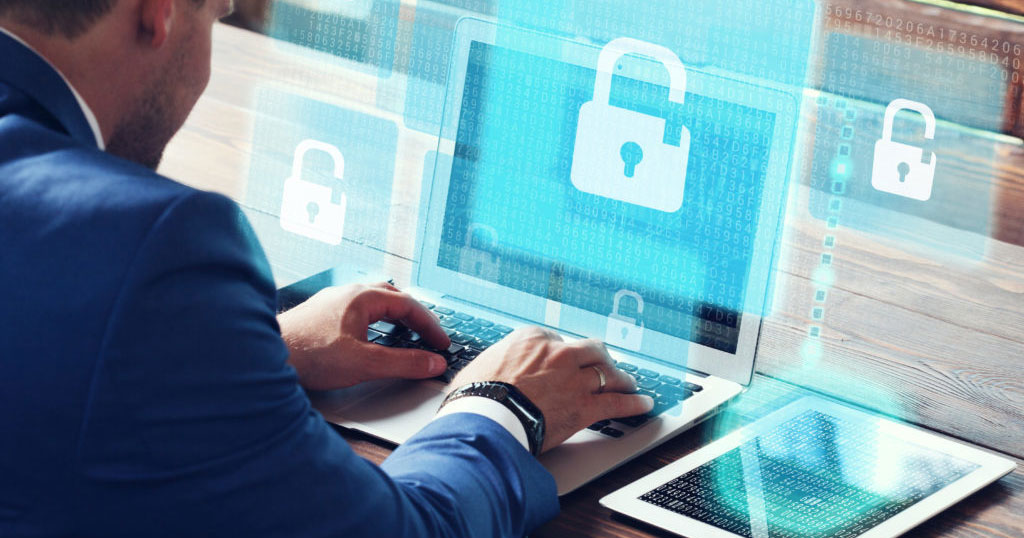Be A Safe Computer User

We all go about our day focusing on our job, our day off, that text, the phone call, writing a paper, reading the news, listening to a song, watching a video, or playing a game; all using some form of electronics throughout our day. Most of the time, the safety of our electronics is ignored. However, most of us put on a seat belt when we get into a car. We don’t drink from a puddle of water, we try to avoid moving cars, and we stay away from things that can electrocute us. These are all examples of how we try to keep ourselves safe, yet, most of us aren’t as diligent in our efforts to protect our valuable and expensive electronics.
Electronics are quite sensitive, and they don’t like water, static electricity, falling to the floor, or getting infections. All are very costly mistakes that could be easily avoided.
My personal favorite is a spill on a laptop. What exactly is the reason for having an open drink next to a laptop? If I’m drinking soda, juice, or water, I keep it in a closed bottle. Hot tea and coffee don’t belong right next to the laptop. Certainly alcohol doesn’t need to be anywhere close to a laptop either. Why exactly would you take your laptop with you to the bath tub? I know it sounds funny, but we’ve had all kinds of liquids spilled on laptops only to have the user come to the shop trying to explain why that glass of red wine was spilled on the keyboard and how the laptop has the only copy of the 500 page project they’re working on. Liquids will cause a short and if that doesn’t ruin the device, usually corrosion will. Keep liquids away from your electronics!
Microsoft will NOT call you about a problem on your computer
Another favorite is the Microsoft or FBI phone call about how your computer is sending out a virus and they need to log on your device to fix it. I once received such phone call myself. Decided I’d let the guy know how upset I am that he’s trying to steal my hard earned money. I asked him how he can live with himself knowing that he’s stealing from my children. We were laughing about that one for a couple of days until a different person tried to call me with the same scam. Unless you contact someone you know and trust for help with your computer, don’t let anyone on your system!
The link in an email that looks legit, but really isn’t. It’s my insurance agent and he wants me to sign a form, or it’s a closing document on my mortgage, or perhaps a resume from someone I know. If it looks or sounds odd that the person emailed you a document, please don’t open it. Ask yourself if there is a reason for them to send you the document. Email them back asking about the legitimacy of the email before you click on the link or open the attachment. Most important of all, if someone sends you an attachment, you should never ever have to sign in with your username and password to open it. If they shared a file with you on a legitimate platform (Google Drive, Dropbox…) call or email them first to confirm the email was actually from them.
2-Step verification systems, use them!
It’s time I say something about 2-Step verification systems. Use them. I know it sounds like it’s inconvenient. Use the system anyway. That extra step of security is available to you. It’s an absolute must for online banking systems and work or personal emails. 2-step verification is where the system you’re attempting to log in to will require code confirmation from you even if you know the username and password. Sometimes it’s through text, email, phone call, app on your phone, or a security device. Wherever you see the option to use the 2-step verification, make sure you do.
Committing to being a safe user is not a hard thing to accomplish. Use some common sense about unsolicited calls or emails, use 2-step verification whenever it’s available, and keep your system away from liquids and don’t drop it. Doing these simple things will help you avoid the majority of problems most users face with computers and electronics.
Call or email us if you have any questions. Stay safe out there!
Make sure to check out our Helpful Articles
Follow us on Facebook @TheComputerGuild to stay up-to-date on everything you need to know about computers.
